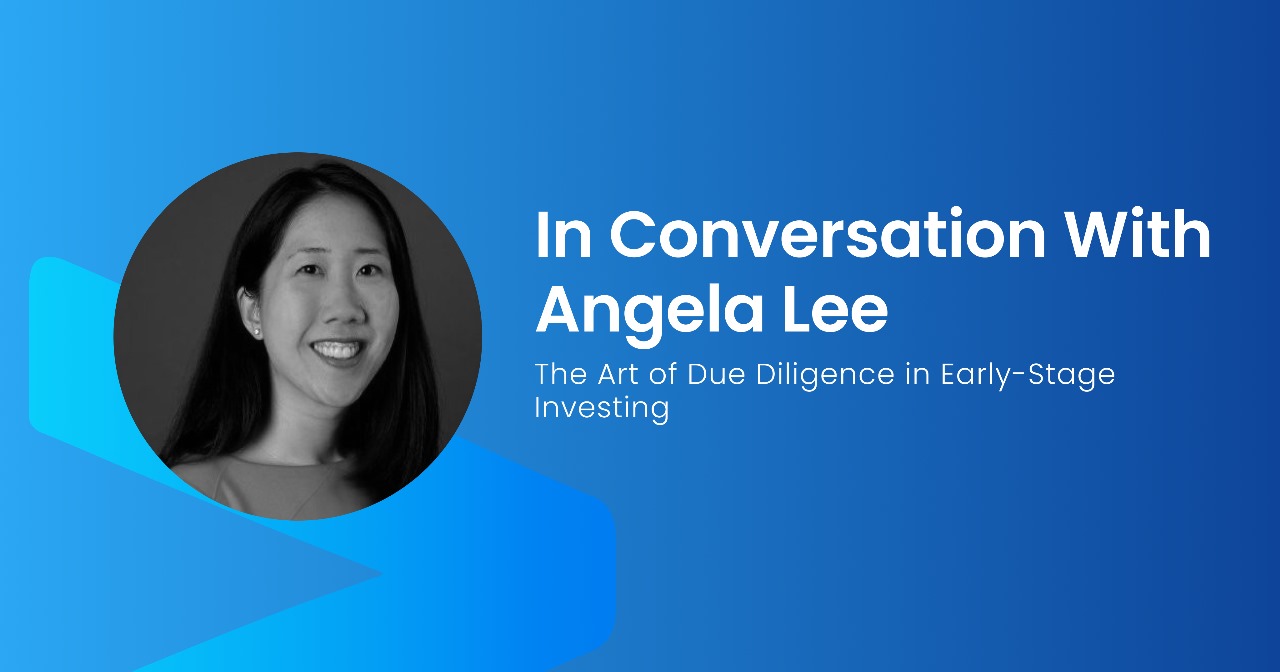Join Angela Lee as she delves into the nuances of due diligence in early-stage investing, sharing insights and strategies for success.

In the fast-paced and ever-evolving world of early-stage investing, due diligence is an indispensable process that can make or break an investment. Angela Lee, the founder of 37 Angels, a network dedicated to closing the gender gap in angel investing, recently shared her expertise on this topic during a podcast with Mark Allen from Gaper.io.
This comprehensive article delves into Angela’s practical advice, the components of a robust due diligence framework, the nuances between angel investors and venture capitalists, and her personal experiences in the field.
The name “37 Angels” often piques curiosity. Angela Lee explained that when they started, only 13% of angel investors were women. Their mission was to close this gender gap and elevate the percentage of female angel investors to 50%. Additionally, securing a domain name that was both memorable and available played a part in the choice. The name symbolizes a commitment to diversity and inclusion within the investment community.
Angela emphasized that due diligence is often misunderstood in the realm of early-stage investing. It’s not merely about gut feelings or personal connections, although these can sometimes play a role. More importantly, it involves a structured and unbiased framework that helps investors make informed decisions. This framework is crucial in avoiding biases and ensuring that investments are based on solid criteria rather than intuition alone.
Due diligence in early-stage investing involves a thorough examination of potential investments to identify risks and opportunities. It requires a detailed analysis of various factors, including the team’s expertise, the market potential, the startup’s progress, and the fairness of the deal terms. This process helps investors mitigate risks and increase their chances of achieving desirable returns.
Angela outlined the four key components of her due diligence framework, known as the Four Ps: People, Problem, Progress, and Price.
Angela highlighted the primary differences between angel investors and venture capitalists. The most significant difference lies in the source of funds: angel investors use their own money, while venture capitalists invest other people’s money. This distinction impacts the size of investments, the level of control over startups, and the investment strategies employed.
Angel investors typically write smaller checks and have more freedom in their investment choices. They can invest in social enterprises or companies with lower financial returns if they believe in the mission. In contrast, venture capitalists have a fiduciary responsibility to their investors to achieve high returns. This often means focusing on high-growth sectors and later-stage startups that offer significant potential for scale.
The stages of investment also differ. While both angel investors and venture capitalists may invest in pre-seed and seed rounds, series A and beyond are usually dominated by venture capitalists. This is because the capital requirements for scaling a company at these stages are much higher, necessitating larger investments that VCs are better positioned to provide.
To illustrate her points, Angela shared a case study from 37 Angels. They invested in a startup called The Lobby, which connected students with top firms for informational interviews and internships. Unexpectedly, the startup pivoted to a completely different business model, focusing on trucking and supply chain management software.
Despite this huge change, the founder offered to return the investors’ money. Most investors, including Angela, chose to stay invested. The company thrived, showing the unpredictable nature of startup investments and the importance of trusting the founders’ vision and adaptability.
This case highlights several key aspects of due diligence and early-stage investing. Firstly, it underscores the importance of evaluating the founding team. The founders’ ability to navigate challenges and pivot successfully was a critical factor in the company’s eventual success. Secondly, it demonstrates the dynamic nature of startups. Market conditions, customer needs, and competitive pressures can change rapidly, requiring startups to adapt their strategies.
As a professor at Columbia Business School and a venture capitalist, Angela’s days are diverse and packed with activities. She spends a significant portion of her time sourcing deal flow, attending events, and meeting with other investors. Due diligence takes up about half of her time, involving extensive meetings, reference checks, and evaluations. The remaining time is dedicated to supporting existing portfolio companies with various needs, from hiring to strategic partnerships.
Sourcing deal flow involves identifying promising startups and building relationships with other investors. Angela attends industry conferences, networking events, and pitch sessions to discover new opportunities. Building a strong network is crucial for accessing high-quality deal flow. About half of the deal flow for 37 Angels comes from referrals and collaborations with other investors.
Due diligence is a meticulous process that involves analyzing startups from multiple angles. Angela conducts in-depth meetings with founders, examines financial statements, reviews business plans, and performs reference checks. This thorough evaluation helps identify potential red flags and ensures that investments are well-founded.
Supporting portfolio companies is another critical aspect of Angela’s role. She works closely with startups to provide strategic guidance, connect them with potential partners, and assist with fundraising efforts. This hands-on support is vital for helping startups navigate challenges and achieve their growth objectives.
For those interested in becoming angel investors, Angela offers valuable advice:
Angela Lee’s insights highlight the critical importance of due diligence in early-stage investing. By adopting a structured framework, understanding the unique aspects of angel investing versus venture capital, and continuously learning from real-world experiences, investors can navigate the complexities of startup investments with greater confidence. Whether you are an aspiring angel investor or a seasoned venture capitalist, the principles shared by Angela Lee provide a valuable roadmap for making smart and informed investment decisions.
Her approach underscores the importance of meticulous analysis, adaptability, and ongoing support for portfolio companies. As the investment landscape continues to evolve, these insights will remain relevant and essential for anyone looking to succeed in early-stage investing.
Top quality ensured or we work for free
